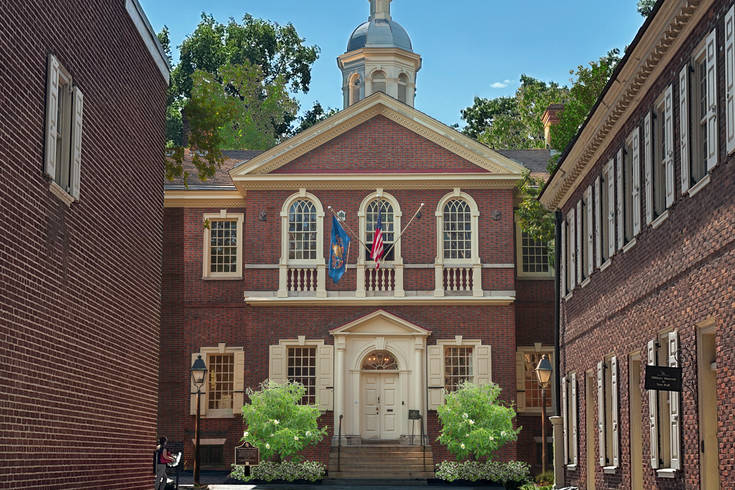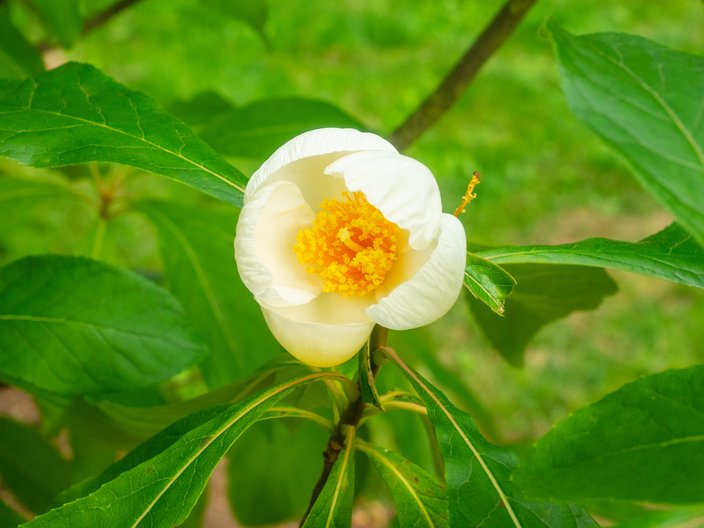
April 14, 2025
 Provided Image/OLIN
Provided Image/OLIN
This rendering shows two Franklinia trees, an extinct-in-the-wild species named for Benjamin Franklin, outside Carpenter's Hall in Old City. The trees will be planted Friday, April 25.
Two rare trees with ties to colonial-era Philadelphia soon will grace the steps to Carpenters' Hall in Old City.
The 6-foot-tall Franklinia Alatamaha trees, better known as Franklin trees, will be planted at the historic building on Friday, April 25. The species was named after Benjamin Franklin by his friend John Bartram, the botanist who founded Bartram's Garden. The species only survived because of Bartram's influence.
Franklin trees have white flowers with orange stamens that produce a sweet fragrance. They bloom in late summer, with their glossy, dark green leaves changing to orange, red and purple in the fall.
The trees have been extinct in the wild since 1803, according to the Missouri Botanical Garden, meaning they only grow under the care of humans. The trees coming to Carpenters' Hall were grown by Rutgers Nursery in New Jersey.
 Provided image/Mariusz S. Jurgielewicz
Provided image/Mariusz S. JurgielewiczA Franklinia flower in bloom.
Bartram observed the trees along the Altamaha River in Georgia in 1765. He and his family brought back seeds and cultivated them at Bartram's Garden. Every Franklin tree alive today is a descendant of those seeds, according to Bartram's Garden.
"Building off the legacy of the Bartram family, this area has an extraordinary network of gardens and arboreta that were founded in the early United States as gardening became more economically accessible," Bartram's Garden Executive Director Maitreyi Roy said in a statement. "That history of welcoming people into nature feels so important here, especially as we work together to build this region's climate resilience — that's a very apt legacy for the Franklinia, given that it went extinct in the wild."
Carpenters' Hall, which dates to the 1770s, once was the home of the Library Company of Philadelphia and the American Philosophical Society — both founded by Franklin. The founding father also took part in secret meetings that paved the way for the United States' alliance with France during the American Revolution, Carpenters' Hall Executive Director Michael Norris said.
"There are just all these connections, so it's going to be really fun to have a very visible evidence or proof of those connections right here," Norris said. "Plus, it's just a lovely tree and I think it'll just give a really wonderful visual aesthetic as people approach the building."
In 2022, Carpenter's Hall underwent a preservation project that included waterproofing its foundation. That required the removal of two boxwood hedges out front. Norris said he reached out to the landscape design firm OLIN for recommendations on replacement trees. The feedback? The Franklin trees, given the building's connections.
Black chokeberries also will be planted at Carpenter's Hall.